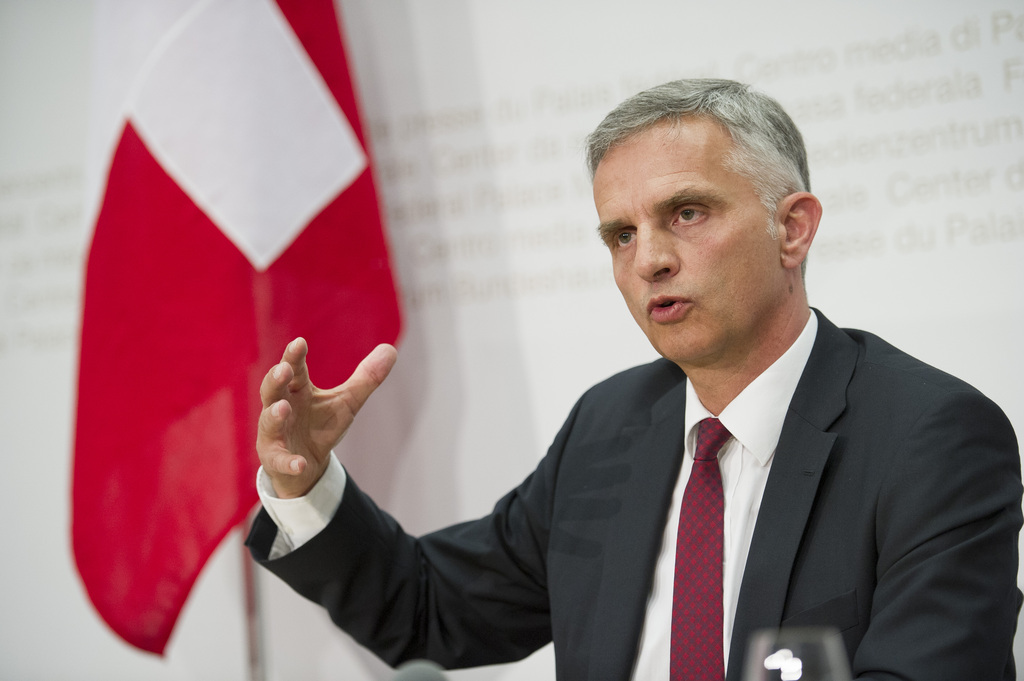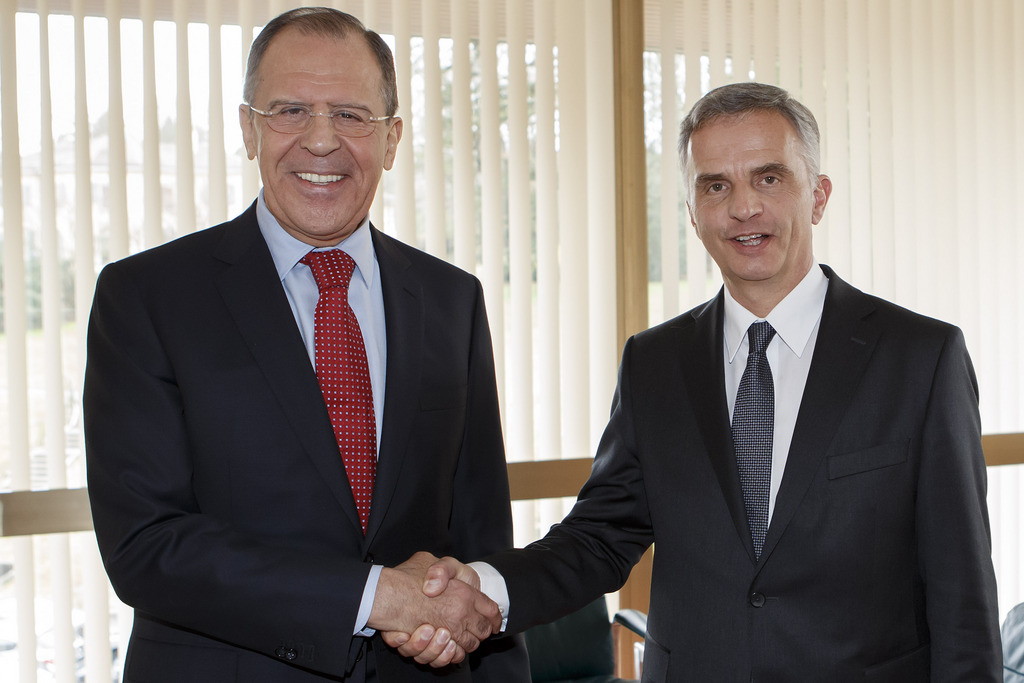Swiss try middle road on Russia sanctions

The government has decided to impose travel restrictions on a number of Russian government officials, but has stopped short of following formal sanctions by the European Union and the United States over Moscow’s annexation of Ukraine’s Crimea region.
Foreign Minister Didier Burkhalter seemed to be at pains to explain the implications of Wednesday’s cabinet decision.
“Switzerland is independent from the EU. But we want to ensure that Switzerland cannot be used to evade sanctions,” he told a news conference in Bern.
Burkhalter, who chairs the Organization for Security and Co-operation in Europe (OSCE) this year, stressed that Switzerland wanted to maintain political neutrality and dialogue with all parties, offering its services in helping to de-escalate the tensions between Russia and Ukraine over Crimea.
Last week, the EU and Washington extended sanctions, notably the freezing of assets and travel bans – against associates of the Russian president, Vladimir Putin, and senior government officials.
Burkhalter said Switzerland condemned Russia’s annexation of Crimea and took note of the sanctions taken by Brussels and Washington.
“The referendum of March 16 is illegal and violates Ukraine’s territorial integrity as well as international law.”
The Swiss government welcomed the efforts by the OSCE to deploy an observer mission to Ukraine ahead of May’s presidential elections and to ensure the respect of minorities, he added.
Switzerland’s stance as a neutral country has not changed, according to Burkhalter.
He said Switzerland was an entirely sovereign state as a member of the OSCE and the organisation was an ideal platform for the country and the government to play a role as international mediator.
His comments came in response to criticism by Defence Minister Ueli Maurer who had warned that Burkhalter’s role as head of the OSCE and possible sanctions against Russia could undermine Switzerland’s neutrality.
Maurer publically apologised for the comments seen as a blatant breach of the Swiss system of collegiality in the country’s seven-member government.
Travel restrictions
Being part of Europe’s single border Schengen agreement, Switzerland in practice will apply travel restrictions against a group of Russian nationals, according to Burkhalter.
Switzerland also reserves the right to impose formal sanctions depending on how the situation in Crimea evolves.
“We want to show that there are still possibilities other than sanctions,” he said.
He shrugged off possible criticism by Moscow and said economic factors were not a main consideration in Wednesday’s decision.
Swiss exports to Russia in 2012 stood at nearly CHF3 billion ($3.4 billion), particularly in the pharmaceutical and chemical industry as well as the engineering and electronics sectors.
Switzerland is reportedly home to more than 20 Russian business oligarchs active in commodities trading and linked to the financial sector.
Burkhalter admitted it was difficult to keep a balance between respect for international law and particular Swiss interests, notably Switzerland’s credibility.
Burkhalter hinted that Swiss government officials might have to reconsider official visits to Russia, despite a series of events scheduled for the celebrations marking 200 years of diplomatic relations.

More
Swiss walk tightrope between the West and Russia
Previous measures
Earlier this month Switzerland, as a member of the four-nation European Free Trade Association, decided to suspend negotiations with Russia on a free-trade deal.
Economics Minister Schneider-Ammann said it was a first formal sign of Switzerland’s concern over developments on the Crimean peninsula.
He pledged the talks could resume in due time.
In addition, the defence ministry postponed mountain training courses for Russian soldiers in the Swiss Alps. The courses are part of a cooperation programme agreed in 2011.
Swiss weapons exports to Ukraine and to Russia were also suspended last month. In the same context, Switzerland froze any possible assets held by Ukraine’s former president, Viktor Yanukovych and his entourage in Swiss banks.

In compliance with the JTI standards
More: SWI swissinfo.ch certified by the Journalism Trust Initiative













You can find an overview of ongoing debates with our journalists here . Please join us!
If you want to start a conversation about a topic raised in this article or want to report factual errors, email us at english@swissinfo.ch.